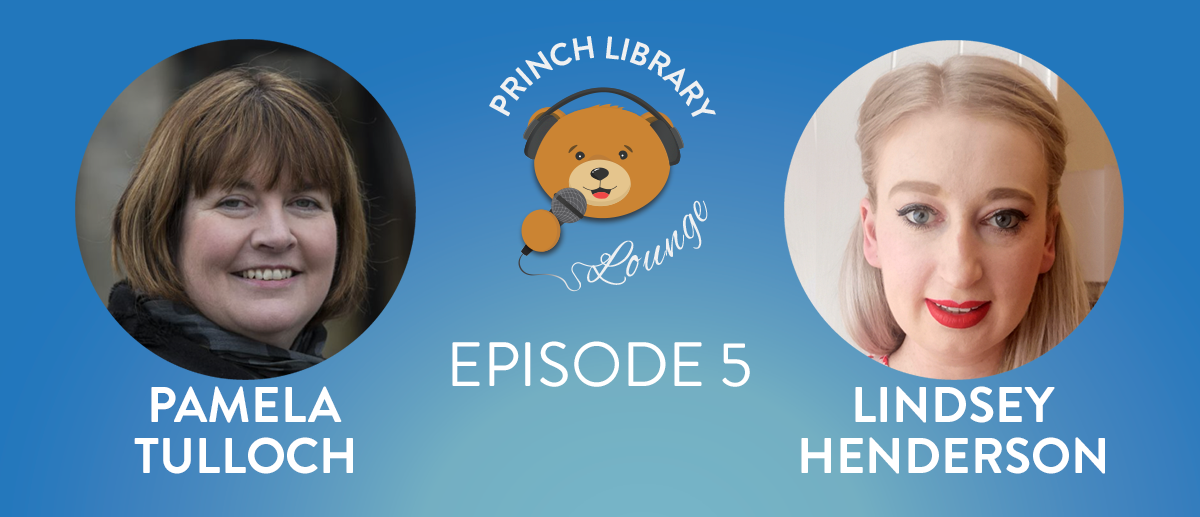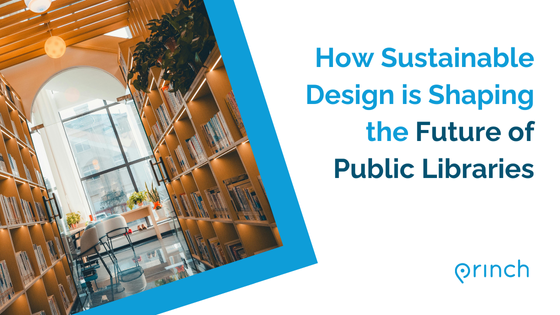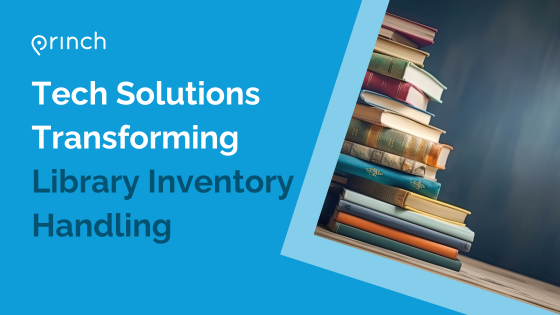Listen in your favourite player
Do libraries play a major role in facilitating digital skill development for the public? What makes the library the place to be for learning or improving digital skills?
To find the answers to these questions and others, tune in to episode five of the Princh Library Lounge! In this episode our host, Marc Lapointe, is joined by two library professionals that are well versed on this topic. Those guests are Pamela Tulloch and Lindsey Henderson from the Scottish Library & Information Council.
Princh Library Lounge Episode 5: Digital Development in Libraries with Pamela Tulloch and Lindsey Henderson.
We hear a lot about digital literacy and its importance in our everyday life in today’s modern world. However, just how important are digital skills? Can someone not possessing these skills get by in today’s world? And most importantly; how can libraries facilitate and improve digital development in the modern society?
To find out the answer to these and many other questions, tune in to episode 5 of the Princh Library Lounge, where our host, Marc Lapointe, is joined by Pamela Tulloch, CEO of the Scottish Library and Information Council (SLIC), and Lindsey Henderson, Head of Programme at SLIC.
Let’s start off the conversation by defining digital literacy; how important it is in today’s world?
Pamela starts the discussion by stating that in 2019 our lives are increasingly becoming more and more digital by default. However, not everybody in society can keep up with these changes, which leads to a divided population; and as a result, those who do not posses the ability to navigate in the digital world are becoming evermore excluded. That is why it is important for libraries to provide the necessary learning environment for these people.
Lindsey adds that digital literacy affects every aspect of one’s life, whether it’s getting the best deals online, job applications, leisure activities and, ultimately, access and opportunities for the future in life.
Now that we’ve established the importance of digital literacy, what are some of the potential barriers to it?
In Pamela’s opinion there are many barriers. One of them is that some people still lack basic literacy. Another barrier is the fact that a large part of the population in Scotland still has limited access to the digital world. And even if one is literate and has access to digital resources, they still need to gain an understanding of how the world works digitally. Pamela brings up the example of young people in universities; while they have their own devices with internet access, occasionally they still lack the digital skills needed to get through their studies.
Pamela brings up the example of young people in universities; while they have their own devices with internet access, occasionally they still lack the digital skills needed to get through their studies. Share on XLindsey brings up another potential barrier, namely that many people may feel under-confident and even embarrassed by their lack of digital skills. That is why libraries have to be a safe place for these people to come to and learn. Lindsey also mentions a recent study by the Carnegie UK Trust that shows that 70% of Scottish people see libraries as a safe and kind place.
You have already mentioned the role of libraries, but could you please further elaborate on it, especially in regards to digital development?
Pamela brings up a number of examples that Scottish libraries have done in the past to help with digital literacy. With some funding from the Scottish government, libraries were able to bring 3D printers to rural areas of the country. Some libraries also initiated coding clubs for small children, which had an amazing reception and made the library a go-to place for younger people. Another example is that certain libraries trained their staff, so people could bring in their own devices and ask the library staff for help.
Lindsey elaborates that libraries provide internet access to those with limited income and opportunities. She thinks it is also important that people bring their own devices, as the next time they encounter the same problem they will know how to solve it. Lindsey refers back to the existing gap in digital skills; she states that unless future generations are taught these skills, the gap will only grow bigger.
Lindsey refers back to the existing gap in digital skills; she states that unless future generations are taught these skills, the gap will only grow bigger. Share on XCould you please define the role SLIC is playing in developing Scotland’s digital landscape?
SLIC is an independent advisory body for the Scottish government, and is also a membership organization for all kinds of libraries, states Pamela. She also explains that all of the organization’s actions are in line with a simple mission statement; to enrich lives through libraries. They do this by implementing and overseeing nationwide strategies, funded and approved by the government.
Lindsey brings up SLIC’s VR project as a recent example of the organization’s actions. SLIC partnered with BBC to bring virtual reality to rural areas of Scotland, providing access to a technology those people might not be able to experience otherwise. This campaign brought users to the local public libraries, and reinforced the notion in people’s mind that the library is a place where one would go for a quality experience.
Pamela brings up another example, where different libraries joined together with a Scottish charity organization, called Playlist for Life, to help people with dementia through the positive effects of music.
What are your closing thoughts in regards to the topic of digital development?
Lindsey brings up another initiative of SLIC’s, namely the digital champions group, where every one of the 32 Scottish local authorities is represented by a digital “champion”. SLIC facilitates four meetings annually between these champions, where they can learn more about digital development through keynote speakers and networking with one another. By training these ambassadors, SLIC empowers them to train the next generation of trainers, making in-house progress possible. Lindsey also stresses the importance of updating the staff training programmes, as basic knowledge about individual devices is no longer enough.
Pamela adds that SLIC sees digital development as an absolute core to what they are doing. She agrees with Lindsey, further elaborating on the importance of updating staff training programmes, stating that staff training might be more important than it has ever been before.
Finally, if our listeners would like to continue this discussion with you, where can they reach you?
Pamela: @SLICCEO on Twitter or p.tulloch@scottishlibraries.org
Lindsey: @SLICLindsey on Twitter or l.henderson@scottishlibraries.org
For more information about this topic, please listen to episode 5 of the Princh Library Lounge!
Subscribe to the blog and receive news from libraries around the world














